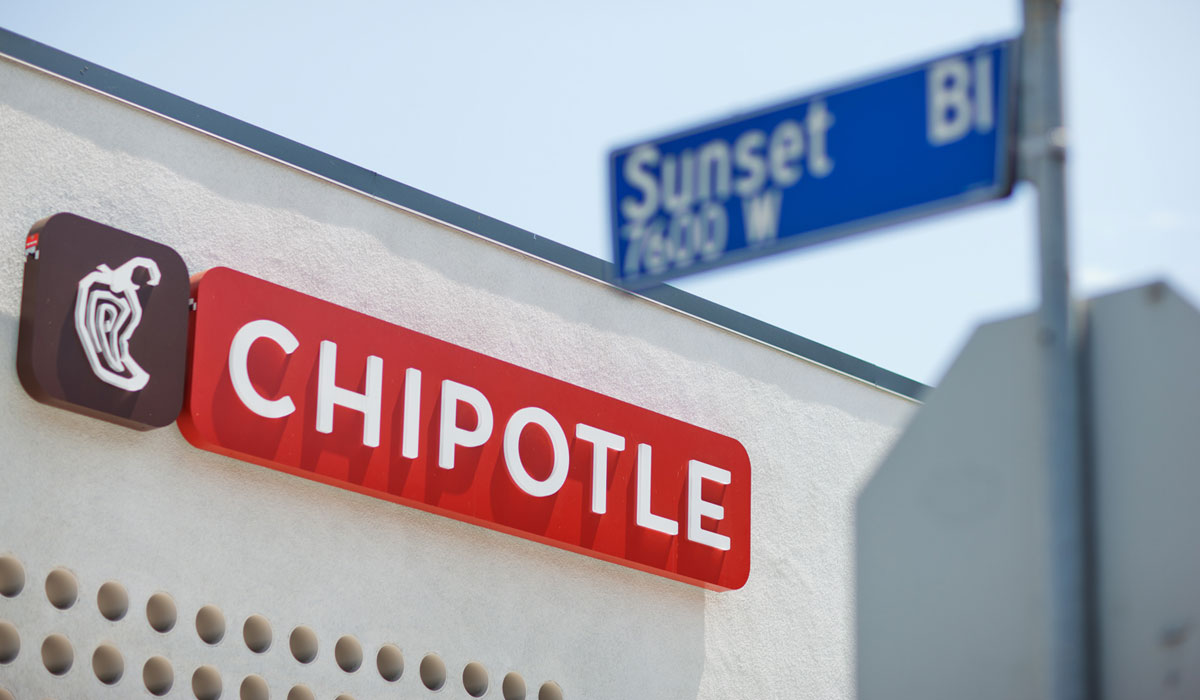Chipotle was ordered to pay $1.37 million in fines for more than 13,000 child labor violations and other state wage and hour violations in Massachusetts, according to an announcement Monday from Massachusetts Attorney General Maura Healey.
The attorney general’s office issued four citations against the fast casual because it violated child labor, earned sick time, and records laws, and failed to pay wages on time. More specifically, the incidents include minors working without valid work permits, too late in the evening, and too many hours per day and per week. Chipotle also did not properly notify employees of their rights as it relates to sick time and failed to provide the attorney general’s office with timekeeping records upon request, according to the release. In some locations, the brand failed to pay workers within six days of the end of a pay period.
Sixteen- and 17-year-olds worked later than state law allowed and minors worked more than the nine-hour daily limit and 48-hour weekly limit, the attorney general’s office said. The audits were conducted between 2015 and 2019.
READ MORE: Chipotle fights the ‘talent crisis’
“Chipotle is a major national restaurant chain that employs thousands of young people across the country and it has a duty to ensure minors are safe working in its restaurants,” Healey said in a statement. “We hope these citations send a message to other fast food chains and restaurants that they cannot violate our child labor laws and put young people at risk.”
The office said Chipotle voluntarily agreed to pay $500,000 toward a fund to benefit youth via programs related to the enforcement of child labor laws and the training and workforce development of young workers. In all, the settlement comes to nearly $2 million when you include penalties for earned sick time violations, as well as a failure to keep accurate records and pay timely wages and the voluntary payout.
The chain operates more than 50 corporate-owned locations in the state. The company has since accepted the fines and has come into compliance with Massachusetts law.
Under Massachusetts law, children under 18 may not work more than 9 hours in a day or more than 48 hours in a week. Fourteen- and 15-year-old children may not work later than 7 p.m. and 16- and 17-year-old children may not work later than 10 p.m. on a night preceding a school day, or later than midnight preceding a non-school day. State law also requires employers to have work permits on file for all workers under 18 years of age.
The Chipotle case dates back to 2016 when a parent reported their child worked well past midnight at a Beverly location. The attorney general’s office said an investigation revealed this sort of behavior was a routine occurrence.
As cited by The Boston Globe, child labor violations have been on the rise in recent years. Perhaps thanks to a tight labor market sporting the lowest jobless rates in 50 years. Unemployment held steady at 3.5 percent in December. Job openings have outnumbered employed people for 21 straight months.
In fiscal year 2019, Healey’s office issued 41 citations for child labor law violations totaling more than $487,000 in penalties. That continues an upward trend: It was $270,000 in 2017 and $366,000 in 2018.
Last summer, companies hired 25 percent more teens than they did in the previous year, following an 8 percent gain, according to Challenger, Gray & Christmas. And restaurants have always pulled heavily from the pool. Nearly 13 years ago, there were 1.7 million teenagers working in restaurants. It was essentially the same in 2019, per the Bureau of Labor Statistics. Data also showed that 35.1 percent of teens held a job last year. Additionally, 55 percent of 16- to 24-year-olds were employed as of July 2018. Hospitality (including foodservice) amassed the largest portion of teen and young adult workers at 26 percent.
Counter-service brands have been at the heart of this labor violations issue before—in August, Qdoba was fined $409,000 for more than 1,000 child labor violations at 22 corporate restaurants in Massachusetts.
“We are committed to ensuring that our restaurants are in full compliance with all laws and regulations and we believe that in hiring workers beginning at age 16, we can provide younger employees with valuable experiences and provide a compelling work environment,” said Laurie Schalow, chief corporate reputation officer, in an email to QSR. “As part of our settlement with the Massachusetts Office of the Attorney General, we have agreed to donate $500,000 for the education and enforcement oversight related to child labor laws, for training and skills development of young workers, and to assist Massachusetts youth.
“Chipotle gives workers industry-leading benefits such as debt-free degrees, tuition reimbursement up to $5,250 per year, access to mental healthcare, financial planning tools, and the opportunity for quarterly bonuses for all employees, including hourly crew members, up to a month’s worth of pay per year.”
The California-based chain runs more than 2,500 restaurants and has more than 80,000 employees in the U.S. and internationally. All of the stores are company-owned.
In 2018, Chipotle’s rate of internal promotion was 79 percent. It employed more than 73,000 people, including roughly 67,900 at the hourly level.
Here’s a look at some turnover figures for Chipotle:
2018
- Restaurant hourly (crew, kitchen manager service manager): 144.9 percent
- Restaurant salary (apprentice, general manager, restaurateur): 49.1 percent
- Restaurant field managers (field leaders, team directors, executive team directors): 26.3 percent
- Staff employees (support center workers and field support employees: 49.9 percent
2017
- Restaurant hourly: 158 percent
- Restaurant salary: 37.1 percent
- Restaurant field managers: 18.7 percent
- Staff employees: 23.9 percent
Chipotle has introduced some broad employee programs in recent months, including debt-free degrees, a crew bonus program, and mental healthcare benefits to employees.









